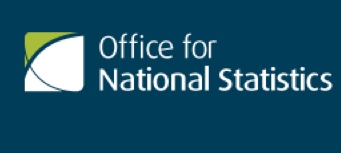Inflation has increased by 0.5% in the year to June 2016, compared with a 0.3% rise in the year to May, according to the Office for National Statistics this morning.
The ONS said that the June rate was a "little above the position seen for most of 2016, though it is still relatively low historically".
ONS Statistician Phil Gooding said: “The rising cost of European air flights, possibly boosted by the Euro football championships, was the biggest reason for this month’s increase in inflation.
“The growing cost of oil, feeding through to petrol prices, also helped nudge up CPI. Today’s figures were collected before the EU referendum, so recent falls in the value of the pound will have had no impact on them.”
CPIH (not a National Statistic) rose by 0.8% in the year to June 2016, up from 0.7% in May.
Reaction
Calum Bennie, savings expert at savings and ISA provider Scottish Friendly, said: “Today’s slight rise in inflation may be the one swallow that does not make a summer or it could be the harbinger of higher inflation in the future. Savers shouldn’t get excited. The prospect of increased inflation is unlikely lead to higher interest rates because the government’s focus will be on ensuring there is enough stimulus to the economy by keeping rates low.
"For savers, with interest rates remaining low, stocks and shares ISAs provide an attractive alternative to cash savings, although risk is attached.”
Russ Mould, investment director at AJ Bell, said: “An acceleration in UK inflation to 0.5% year-on-year in June from 0.3% in May gives some potential hint of what the pound’s plunge against the dollar, euro and yen could mean going forward.
“The 0.5% increase in the consumer price index exceeded the consensus forecast of 0.4% and took inflation back to the rate last seen in March, even if it remains way below the Bank of England’s 2% target.
“Ultimately, life begins to the left of the decimal point and the key figure here therefore is still “zero”, although Bank of England Governor Mark Carney make take some solace from what seems to be a slight upward trend in both the headline and “core” CPI readings. Given that a weak pound may help British exporters and nudge inflation higher, Mr Carney’s apparent lack of concern over sterling’s slide makes sense.
“After all, if a central bank is determined to defend a currency it will usually raise interest rates, to provide a higher yield and tempt investors with higher compensation for the risks involved, but on this occasion the Bank of England Governor is talking about interest rate cuts.
“All eyes are now on the next Bank of England meeting on 4 August, when a rate cut and addition to the £375 billion Quantitative Easing programme will come under discussion once more.”
Ben Brettell, senior economist at Hargreaves Lansdown, said: "Today’s announcement that CPI inflation ticked upwards from 0.3% to 0.5% - caused primarily by an increase in air fares and petrol prices – feels especially past its sell-by date, though it was a slightly larger increase than forecast. The data was gathered by the ONS prior to the EU referendum, so doesn’t include the effect of sterling’s dramatic fall since the vote.
"Underlying inflationary pressure is hard to see, with Brexit-related economic uncertainty likely to dampen both consumer spending and wage growth in the short term. As such the Bank of England is almost certain to ignore what should be a temporary spike in inflation when it sets monetary policy. Most members of the MPC believe interest rates will be cut in August, despite the hawkish Marin Weale indicating yesterday he would not back a reduction at next month’s meeting."

